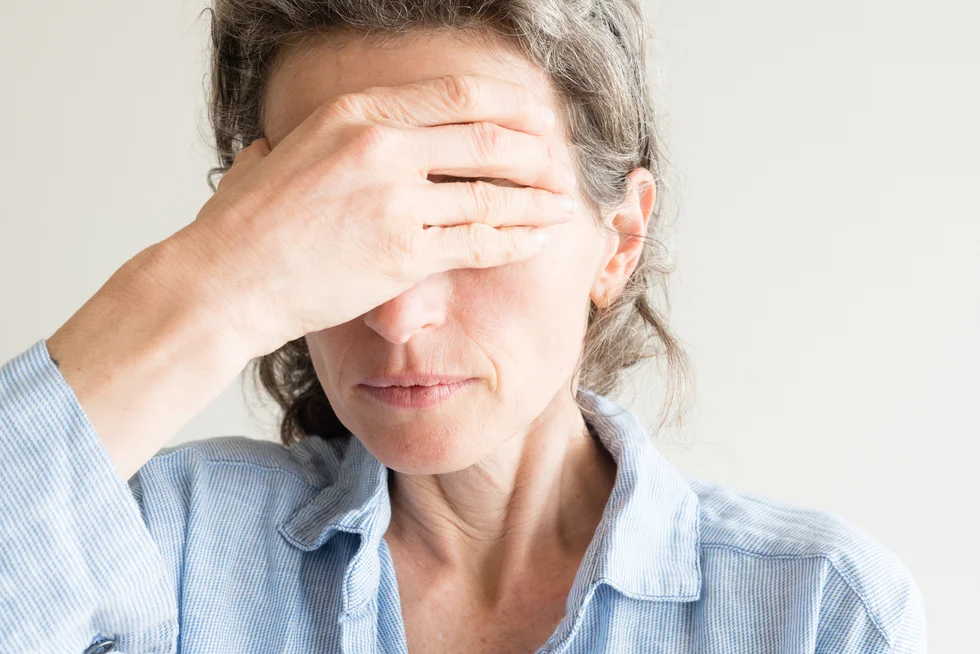After writing about menopause and hot flashes and stress/anxiety being a possible culprit, I started wondering about the link between menopause and anxiety. How are the two linked? Are women feeling anxious about menopause? Or, is it the other way around: does menopause cause anxiety? Is it a by-product of shifting, dipping, all-over-the-chart hormones?
And how can we control our anxiety? As someone who has had her fair share of anxiety over the years (especially around menopause), I decided to ask an expert some key questions about it all. Is it a disorder, I wondered, or a normal life passage?
For some answers, I turned to psychiatrist and UCLA anxiety expert Jason Eric Schiffman, a graduate of the MD/MBA program at the University of Southern California. Dr. Schiffman is affiliated with the UCLA Anxiety Disorders Program where he has helped to develop the web-based, self-directed Cognitive Behavioral Therapy program for Anxiety Disorders found on
Anxiety.org.
Q. I'm well aware that anxiety can occur at any time during a woman's life, but it does seem that panic attacks become more prevalent during times of hormonal upheavals: during adolescence, pregnancy and perimenopause and then menopause. In my experience, I've seen teens and women who never before suffered anxiety be suddenly hit with an increased incidence. Is it merely coincidence or is it indeed hormonally related?
A. Yes, there is absolutely a connection between hormonal changes and psychiatric symptoms in general, and women undergoing specific hormonal changes have increased risk for particular psychiatric disorders. With respect to anxiety, women in the perimenopausal period are more likely to experience panic attacks and other anxiety symptoms than other women of the same age who are either pre- or postmenopausal. The postpartum period is another time when women appear to be more vulnerable to psychiatric symptoms, particularly depression, which is often associated with anxiety.
Q. If increased anxiety is hormonally related, does that mean it will pass once a woman gets through menopause? Does the anxiety need to be treated?
A. Once menopause passes, many women find that their level of anxiety decreases. However, in addition to hormonal changes, there are often many other factors that contribute to the development of anxiety during menopause. For example, women who suffer more physical symptoms, experience negative life events or who are less functional are more likely to develop an anxiety disorder during menopause than women without these additional stressors. So, it is important not to ignore other possible causes of anxiety—just because a woman may be experiencing menopause. Treatment of anxiety is always warranted if there is significant distress or functional impairment.
Q. Once a woman experiences an anxiety attack does this mean she will be more likely to experience them more often?
A. Someone who has experienced
panic attacks in the past is more likely to experience them in the future than someone who has never had one. That being said, panic attacks respond very well to a type of treatment called cognitive behavioral therapy (CBT); someone who gets into treatment may have very few or no panic attacks in the future.
Q. Oftentimes women may be able to feel an anxiety attack coming on. Do you have any advice as to how to recognize the start of one and how to stop it in its tracks before it progresses further?
A. There are very effective techniques for treating panic attacks but they need to be tailored to each individual. There are now self-help versions of CBT available online which walk someone through the creation of a personalized treatment plan. One that I have worked with that is based upon the approach we use in the UCLA Anxiety Disorders Clinic can be found at
www.Anxiety.org.
Q. Anxiety can manifest itself in many forms: sleeplessness or frequent waking during the night, nervous energy, difficulty concentrating, irritability, even depression. What do you suggest for a woman who is feeling any one or a combination of these things? Are there different therapies for different types of anxiety and, if so, what are they (from a behavioral, medical and/or psychopharmacological and/or nutritional viewpoint)?
A. It is important that menopausal women identify the symptoms of anxiety they're experiencing so they find the best ways to allay them. As I mentioned, CBT is one of the most effective treatments for anxiety. There are also medications that can be prescribed by a psychiatrist. These are often used in conjunction with CBT. Practical things you can do to help reduce your anxiety include reducing or eliminating caffeine, exercising on a regular basis, eating healthy foods, getting enough sleep and setting aside time twice a day to do relaxation exercises.
More reading:
8 Ways to Deal With Hot Flashes in the Heat (Or Is-It-Hot-In-Here-or-Is-It-Just-Summer?)
Natural Approaches for Easing Anxiety
An Overview of Menopause
- Is It Menopause or Something Else? ›
- Menopause and Your Moods ›
- Menopause and Sleep: What's the Connection? ›
- Menopause Got You Down? There’s an App For That. ›
- Ways to Cope with Common Menopause Symptoms - HealthyWomen ›
- 5 Easy Ways to Bust Menopause Fatigue - HealthyWomen ›







